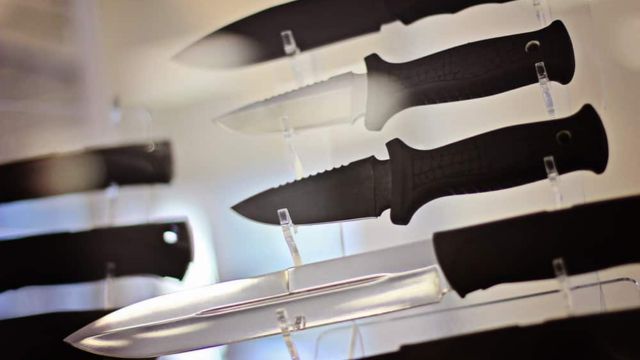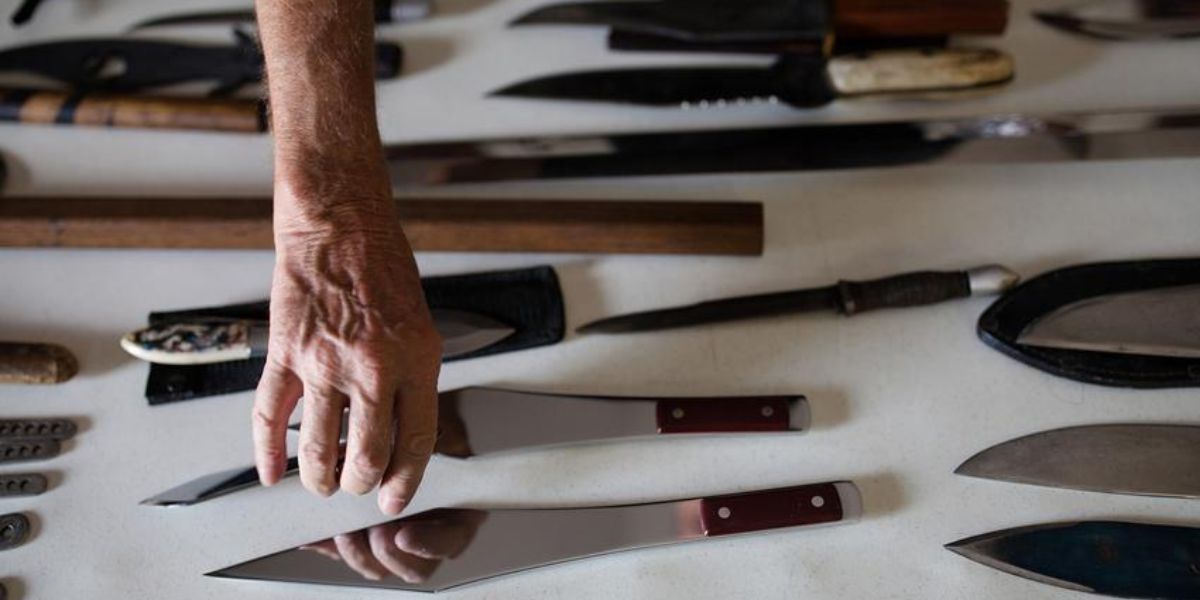MJP –
Texas is known for its strong support of individual rights, including the right to carry weapons for self-defense. Among the many tools people may choose for protection or recreational use, knives are a prominent item. However, as with any weapon, there are legal considerations to keep in mind when it comes to owning, carrying, or using knives in the Lone Star State.
This article outlines what you need to know about Texas knife laws, covering what is legal and what is not when it comes to knives.
Knife Ownership in Texas: What’s Legal?
In Texas, the ownership of knives is largely unrestricted, allowing citizens the right to possess a wide range of knives for personal use.
Whether you are interested in a simple folding pocket knife or a larger fixed-blade knife, Texas law generally does not place restrictions on owning them. However, there are specific regulations about how and where knives can be carried, especially when they are carried in public spaces.
Carrying Knives in Texas: What You Can and Can’t Do
Texas law differentiates between the types of knives you can carry, and how they can be carried. There are various categories to consider when looking at the legality of carrying knives in public spaces:
1. Types of Knives
In Texas, knives are categorized into two primary groups:
- Illegal Knives: Under Texas Penal Code Section 46.01, “illegal knives” include:
- Knives with a blade longer than 5.5 inches, such as certain fixed-blade knives.
- Certain types of knives considered to be “dangerous” or “designed to be concealed,” such as switchblades, automatic knives, and ballistic knives.
- Legal Knives: Texas allows the carrying of various knives, including:
- Pocket knives: These typically have a blade shorter than 5.5 inches and are the most commonly carried type.
- Hunting knives and utility knives: These are also generally legal to carry as long as they are not used in a manner that causes harm or disruption.
- Tactical and folding knives: These knives are legal to carry as long as their blade is 5.5 inches or shorter.
2. Where You Can Carry Knives
The rules governing where knives can be carried are important to understand, as carrying a knife in certain locations may lead to legal trouble.
- Public Spaces: It is legal to carry most knives in public spaces, as long as they meet the legal criteria, including the blade length. However, carrying a knife with a blade longer than 5.5 inches or a “dangerous” knife in public is prohibited.
- Schools and Government Buildings: Texas law restricts the carrying of knives on school campuses, within 300 feet of a school, and in government buildings, including courthouses and polling places. Knives are typically prohibited in these locations unless you are a licensed law enforcement officer or have a valid exemption.
- Private Property: Property owners have the right to ban knives from their premises, meaning you may not be allowed to carry a knife onto private property if the owner has a no-weapons policy in place.
3. Carrying Knives Openly vs. Concealed Carry

- Open Carry: It is legal in Texas to openly carry most knives, including folding knives, as long as they meet the size and category restrictions. In fact, Texas law permits open carry of knives that are not classified as “illegal knives.”
- Concealed Carry: Carrying a concealed knife (a knife hidden on your person or in your bag) is subject to stricter laws. Texas law generally allows concealed carry of knives that are not classified as illegal knives, as long as the blade is not over 5.5 inches in length. If the blade is longer, the knife is subject to restrictions, and you may be required to carry it in a visible manner, such as on your belt.
Using Knives in Texas: What You Can and Can’t Do
When it comes to using knives, the law is clear that they cannot be used in a way that threatens public safety or causes harm to others. Here’s what to keep in mind:
12 Bizarre Oregon Laws You Had No Idea Were Real
- Self-defense: Texas law allows the use of knives in self-defense situations. If you are legally carrying a knife and are threatened or attacked, you are allowed to use reasonable force to defend yourself. However, it’s important to note that the use of excessive force or premeditated violence could result in criminal charges.
- Assault: Using a knife to threaten or harm another person is considered assault, which is a criminal offense under Texas Penal Code Section 22.01. Assault with a knife, or using a knife in a way that causes injury or death, could result in severe criminal charges, including aggravated assault or even murder.
- Reckless or Negligent Use: If a person uses a knife recklessly or negligently, it could result in criminal charges. For example, using a knife in a manner that endangers others in a public space or fails to meet safety standards could lead to criminal liability.
Knife Laws and Transportation
Texas also has rules for the transportation of knives, especially when traveling with them across state lines. When transporting knives in a vehicle, the blade must be legally stored. For example:
- A knife should not be within easy reach of the driver or passengers.
- Knives should be stored in a secure place, such as in a glove compartment or trunk.
If you are traveling outside of Texas with a knife, be sure to research the knife laws in the other state to ensure compliance.
Conclusion
Texas knife laws offer a relatively broad scope of freedom for knife ownership and carry, but they come with specific regulations and restrictions. It’s important to understand the difference between legal and illegal knives, the laws around carrying them, and the rules on where and how they can be carried.
As with any legal matter, always ensure that your knife use remains lawful and respectful of others, especially when it comes to public safety.
By following these guidelines, you can safely enjoy the use and ownership of knives in Texas while avoiding legal pitfalls.




